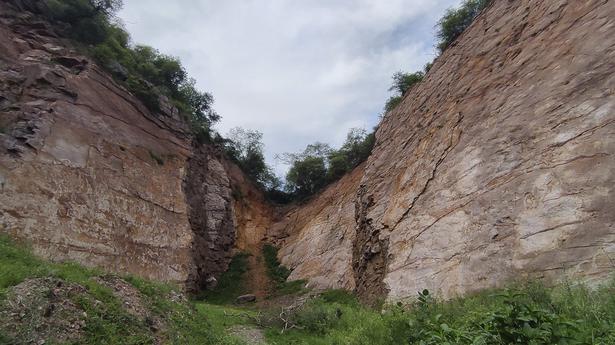
Risking their lives for the love of Aravalis
The Hindu
‘Until the entire mountain range is not seen as a single entity, the fight to save it will not succeed’
“We walked 8-10 km inside the Aravalis to reach different illegal mining sites in Gurugram, Faridabad and Nuh, took pictures and shot videos over a few months last year. We had close encounters with those engaged in illegal mining. It could have been dangerous. It still gives us goosebumps when we think about it. But we did it for our love for the Aravalis,” said Neelam Ahluwalia, member of the Aravalli Bachao Citizens Movement (ABCM).
The citizens group, which has been for long running a campaign to save the Aravalis, had last year collected evidence against illegal mining at 16 locations in the south Haryana mountain range. But its year-long efforts to stir the authorities into action drew a blank until the National Green Tribunal, hearing its petition, ordered the setting up of a committee in May this year.
What has, however, turned the spotlight on the issue again is the crushing to death of a Deputy Superintendent of Police by the illegal mining mafia in Nuh earlier this month.
‘Political will needed’
“It is the government’s responsibility not to allow these illegal activities to happen... We are ordinary citizens who put our lives at risk to highlight the threat to the Aravalis. Our group sent emails to the authorities, filed RTIs, paid lawyers to file a case, and even tweeted pictures and videos. The government has resources to check it, but what is needed is political will,” said Ms. Ahluwalia, who is also a documentary filmmaker.
The group, which is running an online campaign against attempts by the government to legalise mining in south Haryana, was tipped off about the illegal mining activities in the Aravalis by hikers in March last year. It then decided to check and document the illegal activity.
“Initially, we had information about four such locations in Gurugram and Faridabad. We took pictures of the locations and with the evidence collected wrote to various government departments in April last year. There was no response for two months, despite three reminders,” said Ms. Ahluwalia.













